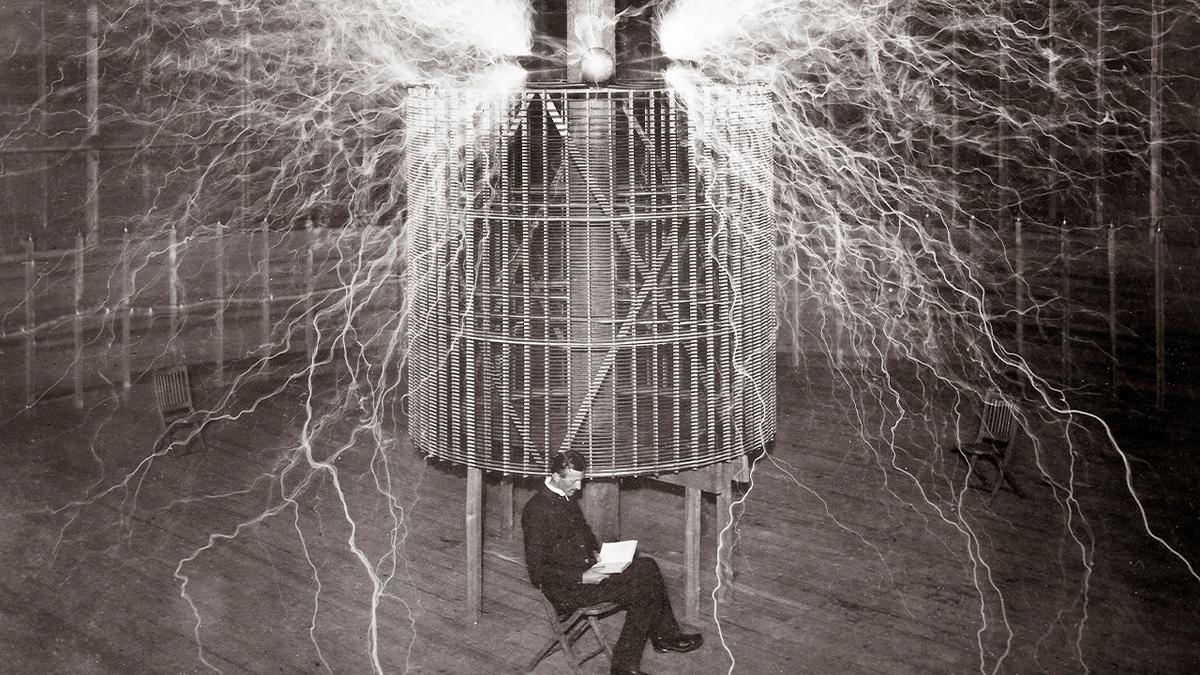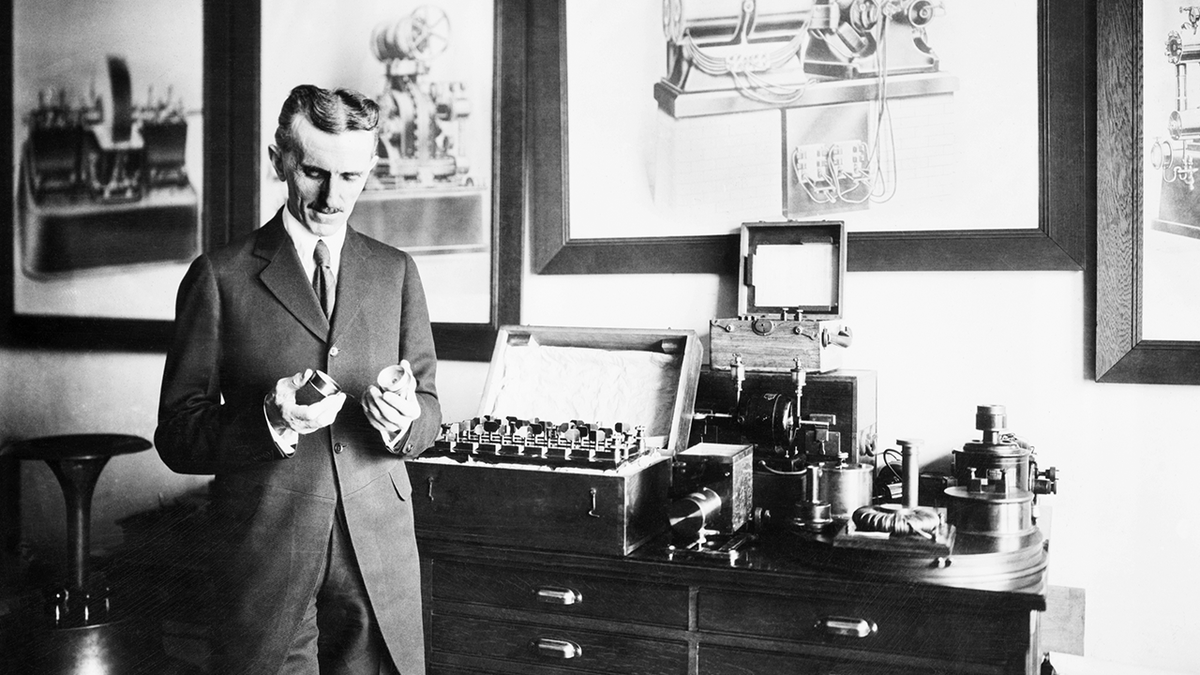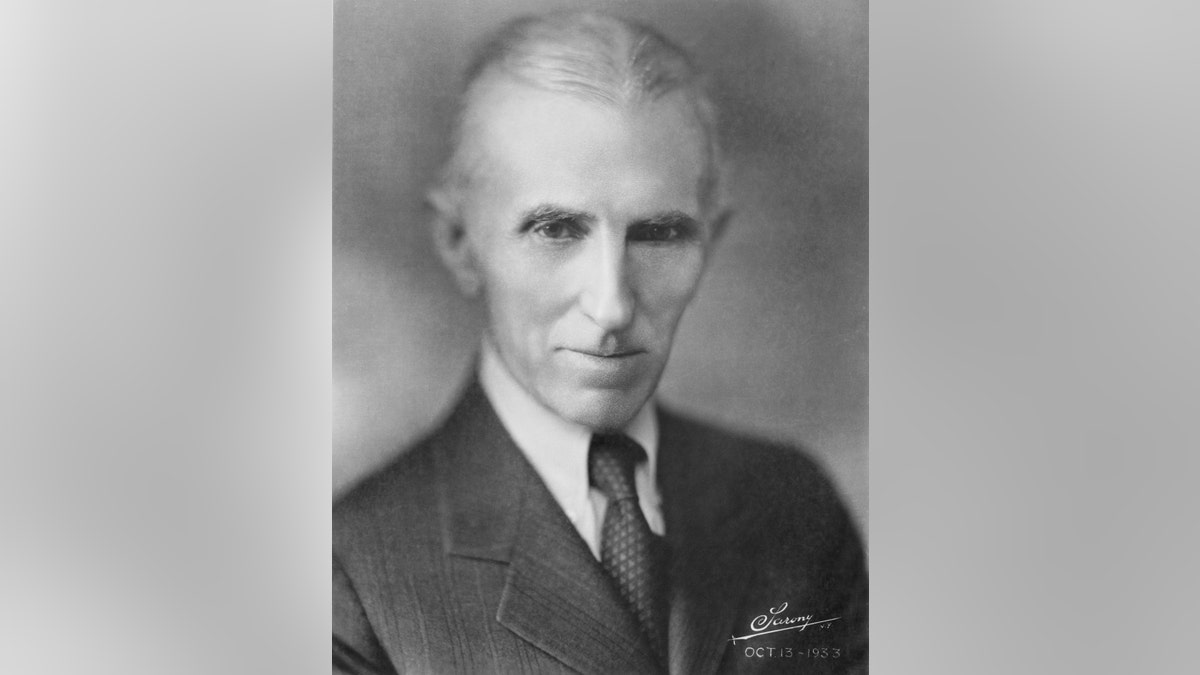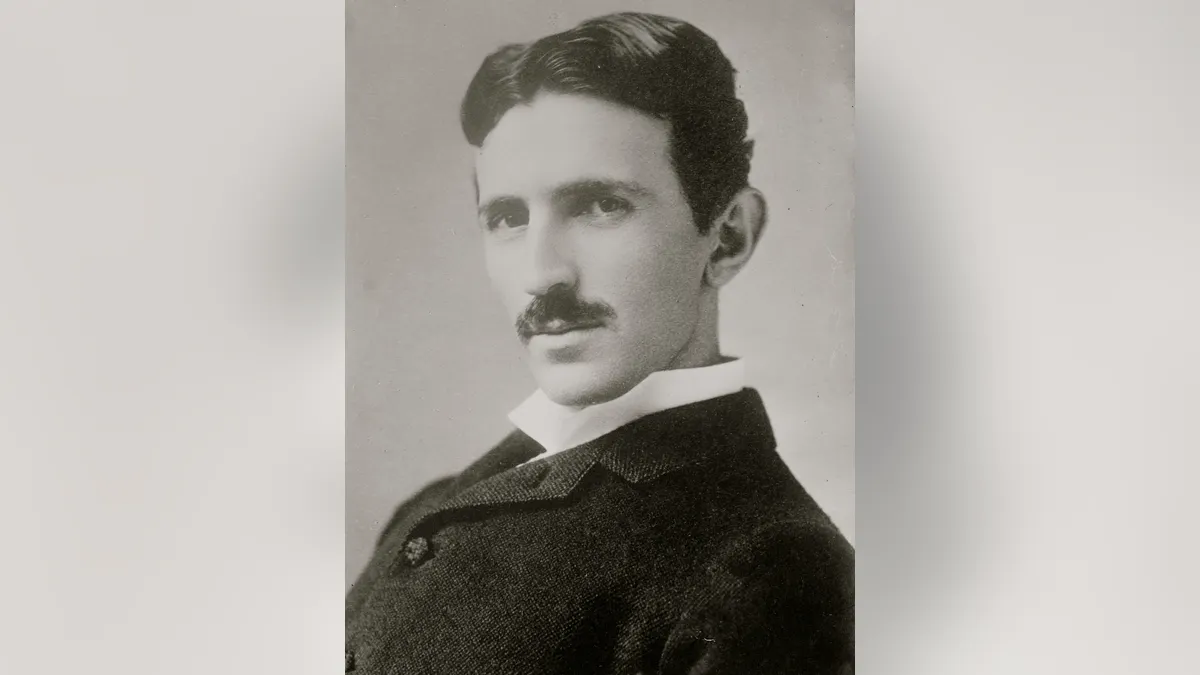Does artificial intelligence pose a threat to humanity?
Fox News correspondent Grady Trimble has the latest on fears the technology will spiral out of control on 'Special Report.'
Century-old writings by American inventor Nikola Tesla seem to predict the development of artificial intelligence, foreshadowing the rise of the groundbreaking tech.
The technology and electricity pioneer's scientific brilliance set him up to make eerily accurate predictions, including prescient insight into the emergence of machines with their "own mind."
"I purpose to show that, however impossible it may now seem, an automaton may be contrived which will have its ‘own mind,’" Tesla wrote in June 1900," and by this I mean that it will be able, independent of any operator, left entirely to itself, to perform, in response to external influences affecting its sensitive organs, a great variety of acts and operations as if it had intelligence."
The comments were published in "The Century Magazine" in an essay titled "The Problem of Increasing Human Energy."
Tesla, born in the Austrian Empire in 1856 before he moved to the U.S. in his late 20s, is famed for his inventions such as hydroelectric power, the Tesla coil, and his work on developing a radio. He is also famed for various predictions on the future of humanity, such as the creation of wireless technology and even describing modern day cellphones.

Nikola Tesla (1856-1943), Serbian-American physicist sitting in his Colorado Springs laboratory with his "Magnifying transmitter" - 1899 (Multiple exposure) (Stefano Bianchetti/Corbis via Getty Images)
The resurfaced essay has been described as Tesla’s "philosophical treatise" where he used his research and genius to explain "how to satisfy humanity’s increasing need for energy," according to the Tesla Science Center at Wardenclyffe, which is located in New York and "dedicated to preserving and promoting the legacy of Nikola Tesla."
"It will be able to follow a course laid out or to obey orders given far in advance; it will be capable of distinguishing between what it ought and what it ought not to do, and of making experiences or, otherwise stated, of recording impressions which will definitely affect its subsequent actions," Tesla wrote.
Tesla’s commentary viewed today seems to be a forecast on what the world today calls artificial intelligence, which is commonly understood as machines that are able to simulate human intelligence and carry out various tasks based on prompts by humans.
‘FATHER OF AI’ SAYS TECH FEARS MISPLACED: ‘YOU CANNOT STOP IT’

Serbian-American inventor and discoverer of magnetic field rotations leading to the use of alternating-currents in electrical machinery and the induction coil known as the "Tesla coil." (Getty images )
"Tesla did foresee an age of machines thinking independently of humans," Joseph Sikorski, a History & Collection Committee Member at the Tesla Science Center at Wardenclyffe, told Fox News Digital.
"Perhaps his most famous example is his teleautomaton, a remote-controlled boat that contained the fundamental patents for radio, robotics and the Nano A.N.D. gate- a primitive logic gate which is a fundamental part in every computer."
HONORING THE LEGACY OF AMERICAN PHYSICIST AND ENGINEER NIKOLA TESLA
Two years before Tesla penned "The Problem of Increasing Human Energy," he developed the world’s first radio-controlled boat, which is seen as paving the path for modern-day drones.
Sikorski, a renowned Tesla researcher and filmmaker, pointed to a letter Tesla wrote Purdue University professor Benjamin Franklin Miessner in the 1890s, where Tesla explained he never limited himself "to mechanisms controlled from distance but to machines possessed of their own intelligence."
"Since that time I had advanced greatly in the evolution of the invention and think that the time is not distant when I shall show an automaton which, left to itself, will act as though possessed of reason and without any willful control from the outside. Whatever be the practical possibilities of such an achievement, it will mark the beginning of a new epoch in mechanics," Tesla continued.
AI COULD GO 'TERMINATOR,' GAIN UPPER HAND OVER HUMANS IN DARWINIAN RULES OF EVOLUTION, REPORT WARNS

Nikola Tesla one of the world's foremost scientists, who celebrated his 78th birthday by telling of his wall of force "all invisible screen male of death rays, through which nothing can pass."
Sikorski told Fox News Digital that Tesla described the telautomaton as having a "borrowed mind."
"This perhaps better illustrates the potential benefits, yet dangers of unrestricted A.I,- for where the mind is 'borrowed' from could make all the difference, since it will be built upon the work of human beings who may be unable to contain their inherent flaws or biases," Sikorski said.
2 LETTERS BY NIKOLA TESLA SURFACE IN SERBIA
The release of OpenAI’s chatbot ChatGPT last year launched technology communities across the world into a race to develop more powerful AI systems. The chatbot is trained to mimic human conversation by absorbing mass amounts of text – including everything from news articles and websites to books – and generate responses to human users through patterns in data it learned.
Some tech leaders and experts have publicly denounced the rapid evolution of artificial intelligence, with many critics concerned with how AI could surpass human intelligence.
"I have suddenly switched my views on whether these things are going to be more intelligent than us," Geoffrey Hinton, known as the "godfather of AI" told MIT Technology Review this month. "I think they’re very close to it now and they will be much more intelligent than us in the future…. How do we survive that?"

Portrait of Serbian-American inventor and engineer Nikola Tesla (1856 - 1943), aged 34, circa 1890. (Napoleon Sarony/Buyenlarge/Getty Images)
Tesla is credited for accurately predicting a handful of other technological advances currently in use today, such as tech that could transmit data wirelessly, also known as the internet, the BBC previously reported.
He even made a prediction in a 1926 interview with Collier's magazine about "vest-pocket" technology that's credited as Tesla foreseeing the creation of cellphones.
"When wireless is perfectly applied the whole earth will be converted into a huge brain, which in fact it is, all things being particles of a real and rhythmic whole. We shall be able to communicate with one another instantly, irrespective of distance," Tesla told Collier’s in the 1926 interview.
CLICK HERE TO GET THE FOX NEWS APP
"Not only this, but through television and telephony we shall see and hear one another as perfectly as though we were face to face, despite intervening distances of thousands of miles; and the instruments through which we shall be able to do his will be amazingly simple compared with our present telephone. A man will be able to carry one in his vest pocket," he continued.











































